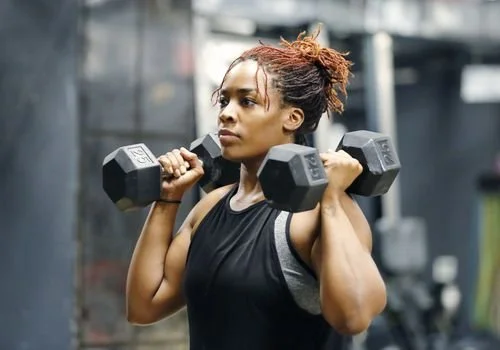PHYSIOLOGICA: Strength Training For Women
One of the best things to happen over the past 5 - 10 years is the increase in women lifting weights. When I started instructing and programming workouts for people in the mid 90’s, women were very rarely seen in the weights area. To women it was often seen as an out of bounds area oozing testosterone, and full of big sweaty scowling men.
Things have changed, but they could change a lot more. There is still far more men lifting than women, but the internet has given women especially more information, more role models and inspiration through YouTube and Instagram. This has resulted in women with more confidence and being more willing to walk into quite an intimidating arena.
There are still those who think that picking up weights will make them blocky and masculine. This is a common myth, it is incredibly difficult even for men to build muscle, let alone women who have significantly less muscle building natural testosterone. The benefits to women, especially as they get older are huge, here are some great reasons to start lifting if you don’t already.
Muscle tone and strength reduces with age. Weight training has been shown not to just reduce this, but reverse it. Muscle supports the skeleton, so less muscle means less ability to control posture, keep joints strong and move functionally day to day. It’s also easier to burn fat if you hold more muscle as muscle requires calories just to maintain it.
If you play sports, or jog then weight training will allow you to continue playing or allow you to keep moving much longer. By keeping muscles strong and joints supported, you can keep doing the things you love, pain or injury free.
Bone loss is an issue with men and women, but women have smaller, thinner bones. The problem is increased for women after menopause. Approximately one in two women over 50 will fracture a bone due to osteoporosis* . A woman can lose up to 20% of her bone density during the five – seven years following menopause.**
Weight training and load bearing can drastically reduce bone loss. For most people, bone mass peaks during the third decade of life. So by increasing bone density through strength training, we can protect the skeleton for life.
There’s often an improvement in mood and mental health. The reasons aren’t fully understood, but it could be the result of an improvement in blood circulation, feeling of well-being from the endorphins produced during weight training, or the mental focus on the training, these have all been suggested.
So, we know it’s good for you - but if you don’t do any type of strength training, then how do you start? Covid 19 has meant gyms have been closed for some time but are now back open.
Always get your Doctor to check your general health first. You need to check your heart health and blood pressure as gyms or trainers will always need a heath questionnaire filled in.
Strength training is very focussed on technique, so it’s not a case of turn up and try it. You need guidance and advice, so see a fitness professional.
Start light and build up slowly, let your connective tissue get strong as well as your muscles. Your ligaments and tendons adapt much slower than muscle tissue, so don’t be in a rush.
After the check up, start with 30 minutes three times per week, training the whole body. If the thought of a gym is too scary, start with basic Bodyweight exercises first, Bodyweight squats, press ups and step ups on a park bench. These are all a great place to start, and will help you move on to more advanced training when you feel more comfortable.
Covid 19 is making things more difficult, but it’s often better to start with a friend, it’s a great way to motivate yourself and each other. If one of you loses motivation, the thought of letting the other down is helpful to stick to a plan.
There are literally no down sides to strength training. Stronger bones, muscles and improved health and posture. A increased ability to tackle the world and often an increase in mental health. So if you’re already lifting weights, congratulations! If you haven’t started yet, you’re never too old to give it a go. One of my clients was 83 and still going strong.
*
https://www.nof.org/preventing-fractures/general-facts/what-women-need-to-know/
**
https://www.bones.nih.gov/health-info/bone/bone-health/exercise/exercise-your-bone-health


